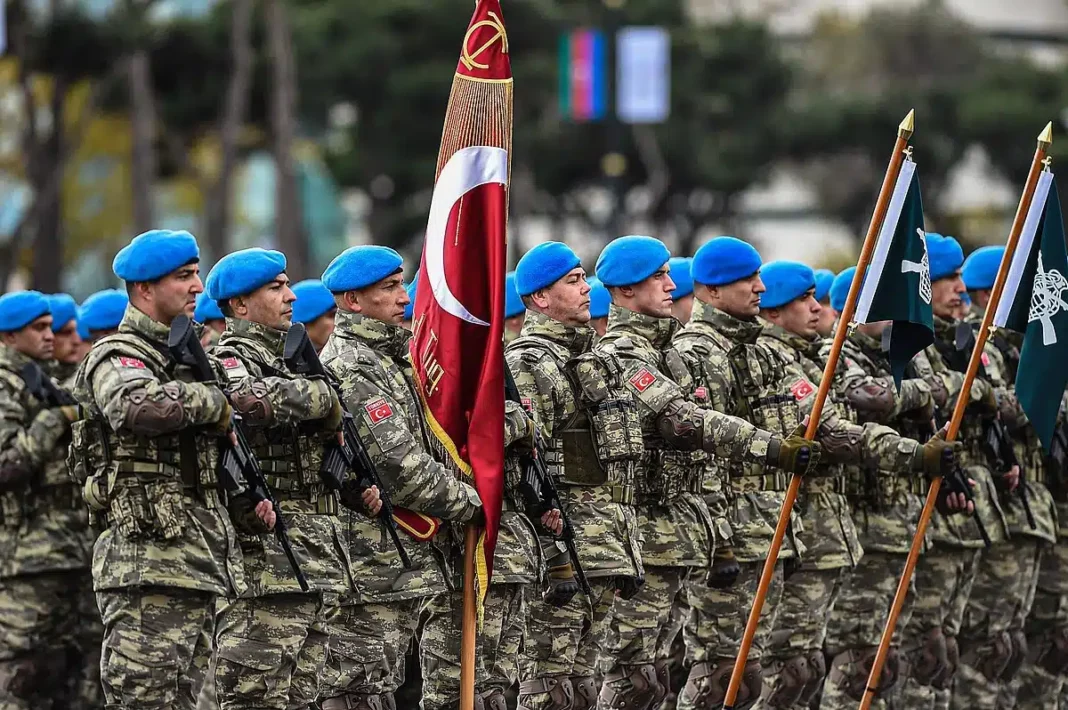Greek Reporter, October 9, 2024
Germany has authorized large-scale arms exports to Turkey for the first time in years, Der Spiegel reported earlier in the week.
It is the first such major deal in years since Berlin sidelined Ankara over its domestic and foreign policy moves.
Berlin’s Federal Security Council, which meets in secret, has approved a weapons sale to Turkey valued at $368 million, the German weekly said.
The package includes 100 anti-aircraft missiles and torpedoes for the Turkish navy, as well as substantial material packages for the modernization of Turkish submarines and frigates.
The deal comprises 28 SeaHake torpedoes from Thyssenkrupp’s naval division, modernization materials for Turkish U209 submarines, and engine parts for corvettes and frigates.
In 2023, only 17 minor export projects worth €1.22 million were approved, representing a significant low point in such relations. In the first quarter of 2024, that increased to €23 million ($25 million) worth of weapons exports being approved by Germany to Turkey.
Now, with the recent deal, relations between the two countries in the defense sector have exceeded previous expectations, potentially signaling a reconciliation or a shift in Berlin’s stance toward Ankara, the Middle East Monitor says.
Germany objects to Turkey’s bid to buy Eurofighter jets
Since last year, Ankara has been seeking to purchase at least 20 Eurofighter jets, with the total package estimated at $5.6 billion.
However, progress on the deal has been slow due to opposition from certain factions within the German government’s coalition. In 2023, Erdogan reportedly requested from Germany to approve the sale of the Eurofighter Typhoon jets, aiming to counter Greece’s acquisition of Rafale fighter planes.
However, German officials cited diplomatic strains with Turkey over its acquisition of Russian air defenses, military actions in Syria against Kurdish forces, and delays in ratifying Sweden’s NATO membership. Now that Turkey has ratified Sweden’s membership, an obstacle to the acquisition of the jets has been removed.
Germany is now also reconsidering Ankara’s request for the Eurofighter jets after initially expressing reluctance to proceed with the sale, Der Spiegel said.
Akif Çağatay Kılıç, a chief advisor to President Recep Tayyip Erdogan, told journalists last week that there have been advancements regarding the Eurofighter deal but did not provide additional details, per Hurriyet.
The jets are produced by a consortium of countries consisting of Germany, Spain, Italy, and the UK. All support the sale except Germany, according to media reports.
Turkey’s interest in acquiring Eurofighter jets has emerged as an alternative amid uncertainties surrounding the recent approval of F-16 purchases from the United States.
The finalized F-16 deal, greenlit by US Congress, allows Ankara to acquire 40 new jets and upgrade 79 existing ones.
Germany’s hesitation to approve the sale is reportedly tied to concerns over Turkey’s natural gas drilling activities in the eastern Mediterranean.
The reservations trace back to decisions made by the EU Council in 2019 when sanctions were imposed on Turkey over its exploration activities in the sea during a crisis with Greece, Hurriyet reports.

